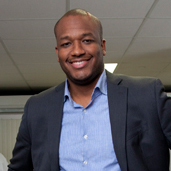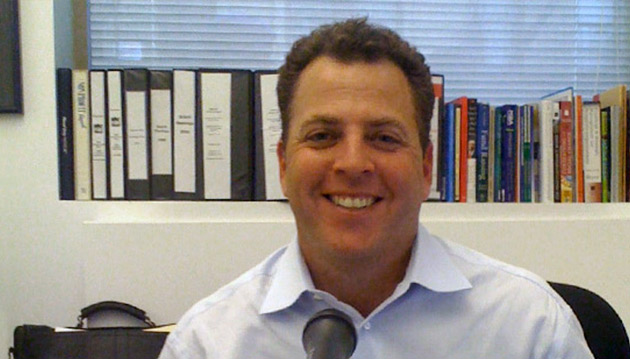This episode of Please Speak Freely is all about food. I sat down with Crystal FitzSimons of…
Author: Eric Gurna

Podcast: Play in new window | Download (Duration: 55:25 — 25.4MB) | Embed
Subscribe: RSS
Alfie Kohn is a busy man, and I had to be pretty pushy to get him to agree to be a guest on Please Speak Freely. As the author of bestselling books Punished By Rewards, The Schools Our Children Deserve, Beyond Discipline and more, Mr. Kohn pretty much embodies the title of the podcast, and his work has been incredibly important to me – he’s shaped my perspective on youth work more than any other writer. Our conversation ranged widely – we talked about charter schools, expanded learning time,Race to the Top, and the dark side of using extrinsic rewards to motivate both young people and adults.
 By Sam Piha, Director of Temescal Associates
By Sam Piha, Director of Temescal Associates
Over the last 25 years, Alfie Kohn has been a critical voice in education. He has, through his writings and presentations, urged us to focus on the child instead of the student; on learning instead of achievements. As the pressures of No Child Left Behind increased, he was unafraid to speak freely about these topics. Thus, it is most appropriate that he is featured on “Please Speak Freely.”
I greatly enjoyed the lively exchange between Eric Gurna and Alfie Kohn, in particular their discussion of extended learning time, creativity, and motivating kids without the use of rewards or punishments. (If you also enjoyed the podcast, I highly recommend that you view some of Alfie Kohn’s video presentations on YouTube).
The latest rage in educational reform seems to be the notion of extended learning time (ELT). We have known for some time that children learn regardless of the time of day or the particular season. This idea is not new to those in the afterschool and summer learning movements. However, ELT for many appears to be about extended seat time and extending the school day. In my recent interview with Karen Pittman (Forum for Youth Investment), she cautioned, “The most important thing to remember is simply that more time doesn’t necessarily equal more learning. Learning opportunities must be high quality if they are going to produce more learning – whether they happen in classrooms or CBOs.”
 By Rhys Powell, Founder & President, RedRabbit
By Rhys Powell, Founder & President, RedRabbit
When I listen to these types of interviews, I cannot help but think how this is mostly a community issue and that we all need to work together to create a systemic change. I believe we can have an impact on the issues facing our society in this area if we focus on both ends of the spectrum—the bottom-up local grass roots level and the top down regulatory and government level. I would like to talk about that theme first, using the conversation with Crystal Fitzsimmons &Lucy Komisar, as a starting point. Then I’d like to expand on some of the key points that they brought up with more specificity.
Podcast: Play in new window | Download (Duration: 50:21 — 23.1MB) | Embed
Subscribe: RSS
From the top:
We live in a country where USDA nutrition standards consider(using only a few examples here) pizza and french fries as vegetables—which means they can be served to our school-aged children every day of the week. If that is the standard that we set; if the bar is set at that low a level, then kids are far from safe. No one can re-invent the system overnight, but parents and educators need to step up and say, “this is not helping our children and it must change.”

Podcast: Play in new window | Download (Duration: 50:54 — 23.3MB) | Embed
Subscribe: RSS
As a youth development organization, Rich Berlin and his team did an audacious thing – they started their own school. What began as a notion to revive baseball in the inner city grew, until Harlem RBI was a major resource to the East Harlem community, and then they founded DREAM Charter School. I had a frank and interesting conversation with Rich, Harlem RBI’s executive director and the chair of the charter school. Rich was more than happy to speak freely! Plus we get to hear from Earl Martin Phalen ofSummer Advantage (and founder of BELL) again, as he responds to Rich’s challenge that out of school time
 By Rebecca Fabiano, Senior Consultant
By Rebecca Fabiano, Senior Consultant
Development Without Limits
It was really refreshing to listen to this recent podcast of Please Speak Freely. There were so many moments when I wanted to shout “YES!” in complete agreement as I listened to guest Rich Berlin, Executive Director of Harlem RBI and the Chairman of Dream Charter School.
One idea that resonated with me was Mr. Berlin’s description of why he does this work, “I do this because I believe in it and I know if everyone did this the world would be better,” which aligns with my own values and path that led me to working with youth. Two other ideas that stood out for me were his comment on how we can ‘assess’ the quality of an after school program in about 36 seconds – that even with tools like the YPQA (formerly known as, “High Scope”) and other similar assessments, we know in our gut if something is quality or not – and that the work we do is “incredibly important but not that complex.”
I’ve known Dr. Paul Heckman, Associate Dean at the University of California School of Education for a long…
 By: Samuel C. Quiah, Director of Professional Development
By: Samuel C. Quiah, Director of Professional Development
Development Without Limits
Throughout this episode of Please Speak Freely, Dr. Paul Heckman raised many important and sometimes controversial points about the current state of our education system. One of the key points he highlighted is our education system’s movement towards standardization, through increased testing and focusing on “achievement” i.e. grades and scores rather than “attainment,” engaging young people so that they understand the value of their education and become life long learners. Working in the youth development field for almost a decade, as an educator and a staff developer, this topic struck a chord with me. All kids should know how to read, write, and understand basic math and science concepts. Likewise, all kids should learn about music, art, and be engaged members of their community, possessing a critical mind and sound leadership skills. But what happens when we put an overemphasis on grades and not learning?
Over the last 10 years, since the inception of No Child Left Behind, young people have become all too familiar with the term “high stakes testing” or standardized tests that presumably measure their mastery of specific concepts and subject matter at a particular grade level. School administrators have had the added pressure to improve, in many cases failing test scores, to stave off threats that their schools may be shut down if they don’t meet the grade. I’ve spoken to teachers who have had to fundamentally shift their teaching methods to ensure that students are prepared to answer questions on standardized tests, and so that they are viewed as “high-quality instructors,” worthy of incentives and raises.